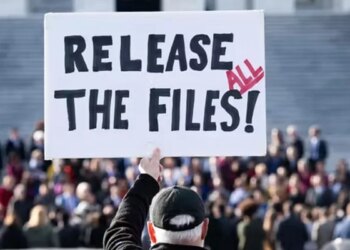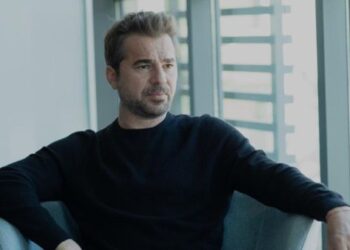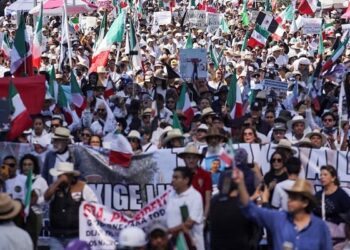Select Language:
- The mayor was expected to run against Erdogan in the upcoming election.
- His arrest has sparked widespread protests.
- The economic situation has deteriorated significantly.
On Saturday, tens of thousands of individuals assembled in Istanbul to voice their opposition against the imprisonment of Mayor Ekrem Imamoglu, a key contender against President Tayyip Erdogan. This rally marks the largest wave of protests Turkey has witnessed in over ten years.
Since Imamoglu’s arrest last week on corruption allegations, hundreds of thousands have responded to calls from the opposition and taken to the streets across the country. While the protests have largely remained peaceful, authorities have detained nearly 2,000 individuals.
The main opposition party, the Republican People’s Party (CHP), along with other opposition groups, human rights advocates, and Western nations, have labeled the actions against Imamoglu as a politically motivated strategy to neutralize a significant electoral opponent of Erdogan.
The government, however, insists that it does not exert control over the legal system, claiming that the judiciary operates independently.
During Saturday’s “Freedom for Imamoglu” demonstration, thousands waved Turkish flags and banners as they flocked to the waterfront rally location at Maltepe on Istanbul’s Asian side.
“When justice fails to speak, the people will make their voices heard,” read one banner raised among the crowd.
“With the state of the economy, the level of justice, and the rule of law all declining, we have no choice but to be here. We demand our rights, justice, and lawfulness,” shared a CHP supporter who chose to remain anonymous.
Last Sunday, the CHP conducted a primary election to nominate Imamoglu as their candidate for the presidential race, which is scheduled for 2028. Nonetheless, the CHP is advocating for an early election, asserting that the current government has lost its legitimacy.
Interior Minister Ali Yerlikaya reported that since the protests sparked, almost 1,900 arrests have occurred, with 260 individuals currently held pending trial as of Thursday.
President Erdogan, who has steered Turkish politics for over 20 years, has dismissed the nationwide demonstrations as mere “theater.” He has warned of potential legal repercussions and urged the CHP to refrain from “inciting” public sentiment.
Following Imamoglu’s detention, Turkish financial markets have plummeted, forcing the central bank to draw on its reserves to stabilize the lira. This unrest has left the private sector feeling the impact.
The government claims that the economic repercussions will be minimal and temporary, asserting that the core elements of the economy remain intact, though they are prepared to take additional steps if necessary.






